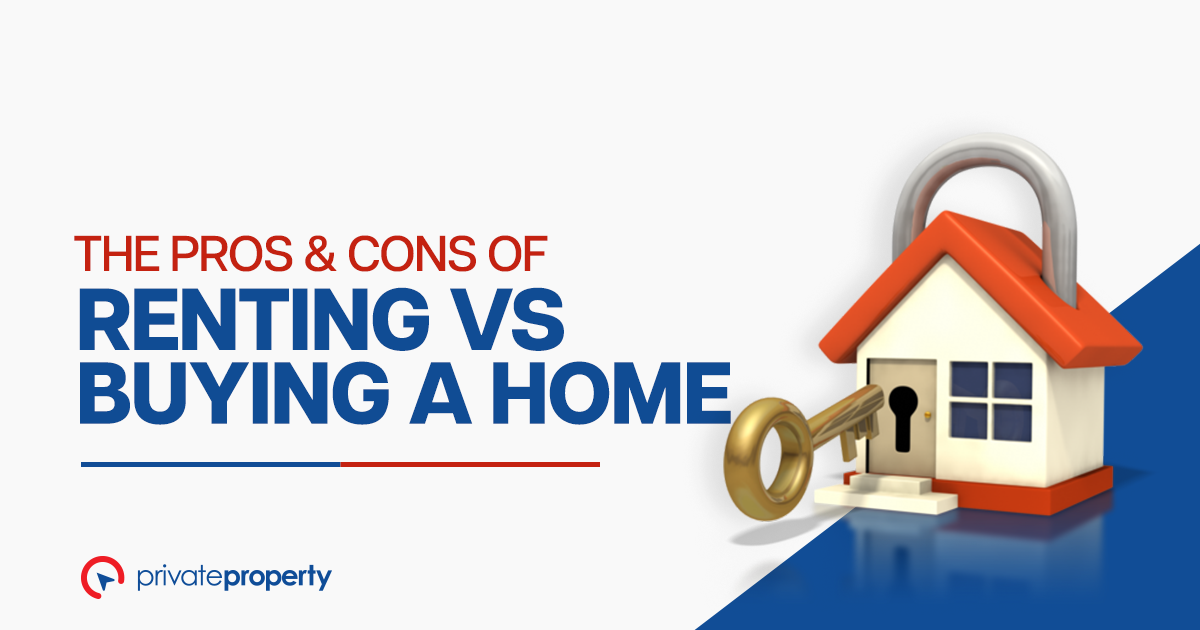
The Pros and Cons of Renting vs. Buying a Home
For most people, deciding whether to rent or buy a home is a monumental choice. This decision not only affects your lifestyle but also has significant financial implications. As with any major life decision, there are advantages and disadvantages to both renting and buying. Knowing what works best for your situation requires weighing these pros and cons against your personal circumstances, financial capability, and long-term plans.
The Benefits of Renting
Flexibility is Key – One of the main perks of renting is flexibility. Renters can easily move at the end of a lease, which is perfect for those who are not ready to settle down or whose jobs require them to relocate frequently.
Minimal Maintenance – When repairs or routine maintenance are needed, it’s usually the landlord’s responsibility. Renters can save time, money, and the hassle of home repairs, which appeals to many, especially those who are not handy with tools or who prefer a more carefree lifestyle.
Financial Predictability – As a renter, you typically have fixed costs during your lease period. You know exactly how much you’ll spend on housing each month, unlike homeowners who might be surprised by sudden repair costs or property tax increases.
The Drawbacks of Renting
Lack of Equity – Renting does not allow for building home equity. The monthly rent check is a cost that doesn’t come back to you in any future financial benefit, unlike mortgage payments that build ownership interest over time.
Limited Control – As a renter, you often have less say over your living space. Want to knock out a wall or paint your bedroom? You’ll need the landlord’s permission. In some cases, restrictions may also apply to pet ownership or customization of the rental space.
Rent Fluctuations – While rent is fixed for the duration of a lease, it can increase when it’s time to renew. Long-term renters may face significant rent hikes over time, especially in high-demand areas.
The Benefits of Buying a Home
Building Equity – Every mortgage payment you make as a homeowner is a step toward increasing your ownership stake in the property. Over time, building equity can prove to be a significant financial asset.
Creative Freedom – Owning a home means you can make modifications to your heart’s content (subject to local laws and zoning regulations). Remodel, repaint, or redo anything to create your dream home.
Potential Tax Advantages – Homeowners often enjoy tax deductions that renters do not, such as mortgage interest and property tax deductions, which can lead to savings during tax season.
Long-term Stability – With a fixed-rate mortgage, homeowners can enjoy consistent monthly payments, unlike renters who may face annual rent increases. This stability can be comforting and financially advantageous in the long run.
The Drawbacks of Buying a Home
Hefty Initial Costs – The upfront costs of buying a home, including the down payment, closing costs, and other fees, can be a significant barrier to entry. This can make home buying a less accessible option for many prospective buyers.
Maintenance and Repairs – All of that creative control comes with a price. Homeowners are solely responsible for all repairs and maintenance, which can be costly and require a significant time investment.
Less Flexibility – It’s much harder to pick up and move when you own a home. The process of selling a house can be time-consuming and financially challenging, particularly in a buyer’s market.
Renting vs. Buying: What’s Right for You?
When it comes down to choosing between renting and buying, it’s all about what fits your career, lifestyle, and finances. Here are some points to consider:
Duration of Stay – If you plan to live in an area for a short time, renting may be more feasible. Buying is often recommended for those who envision staying in one place for several years.
Financial Stability – Homeownership can be a good way to force yourself into a disciplined savings pattern through equity. However, this only works if you can handle the associated costs without stretching yourself too thin.
Local Market Conditions – Sometimes, whether it’s smarter to rent or buy depends on current housing market conditions in your location. In some areas, monthly mortgage payments could be cheaper than rent – or vice versa.
Lifestyle Preferences – Your preference for stability or flexibility can also play a significant role. Do you value the ability to customize your living space, or would you prefer not to worry about home maintenance?
In conclusion, both renting and buying have their merits, providing benefits and drawbacks that must be considered. Your decision should take into account your financial health, lifestyle, and long-term goals. It’s a significant choice, and there’s no one-size-fits-all answer. With careful evaluation and consideration of your personal circumstances, you can make an informed decision that will serve you well in your journey towards finding the perfect home.